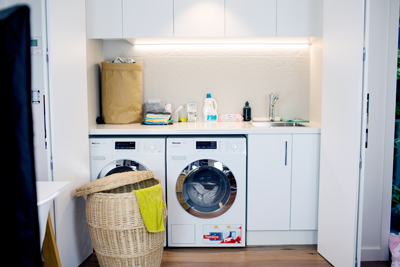Adele Taylor Reduce Allergy Triggers Interview

Reducing Hidden Indoor Allergy Triggers This Winter
Sneezing and blowing your nose in the cooler weather could be a sign you have allergies and not a cold, warns the National Asthma Council Australia.
This World Allergy Week the National Asthma Council's Sensitive Choice Program is here to help the one in five Australians with allergies and one in nine with asthma reduce their exposure to common household triggers such as mould, dust mites and indoor pollutants, before winter starts.
National Asthma Council Director, Allergy Specialist and Immunologist Dr Sara Barnes says the hardest part for many people with allergies is figuring out what, exactly, is causing their symptoms.
'Many people think that allergies are only a problem with Spring hay fever, but allergens can cause issues throughout the year. Talk to your doctor or pharmacist to help work out whether allergies are causing your itchy, runny nose or wheezy chest.'
'During Autumn many areas of Australia experience mould problems following heavy rain, as well as a spike in dust mite populations – the tiny microscopic creatures that get into beds, couches and carpets – which have the potential to cause problems for someone with asthma or allergies who is allergic to them.'
Sensitive Choice® Program Manager, Adele Taylor, says that while studies show dust mite levels can increase two to three-fold during late autumn, there are easy ways to fight off winter allergens.
'Once you know your personal triggers, think about how you could reduce your exposure within the home by following these simple steps. You could make a real difference to your health as well as your indoor environment.'
Find out how you can manage your allergies and asthma at Sensitive Choice or visit the World Allergy Week to learn more about allergies.
Interview with Adele Taylor, Program Manager, Sensitive Choice® at the National Asthma Council
Question: How does Winter affect people attempting to manage their asthma and allergies?
Adele Taylor: During winter people tend to close up their homes and turn the heaters on to keep themselves warm. This means that there isn't as much ventilation and air flow through the home, which in turn creates a warm and humid environment which is the perfect breeding ground for dust mites and mould which are two of the biggest asthma and allergy triggers.
Also the use of wood fire heaters and gas heater can also trigger asthma and allergies as well.
Question: What are the common household triggers?
Adele Taylor: Dust, pollen, mould, pets; chemicals, VOC's, and woodfire smoke are the most common triggers. For more see: https://www.sensitivechoice.com/living-with-asthma-allergies/know-your-triggers/
 Question: How can we take steps to reduce these common household triggers?
Question: How can we take steps to reduce these common household triggers?
Adele Taylor: Make sure if you aren't able to ventilate your home, you are using an air purifier or air steriliser to filter out all the nasties in the air which can trigger asthma or allergies.
Also, make sure you are vacuuming the floors regularly with a HEPA filter vacuum cleaner to remove dust mite, dirt and other triggers from carpets and bedrooms
Pay particular attention to wet areas and clean them regularly to stop any mould or mildew build up.
Use low VOC cleaning and bathroom products to keep your indoor environment healthier
Wash bedding, soft toys and furnishing regularly in wash 55 degrees or hotter
Question: How does a healthy home keep families well during the winter months?
Adele Taylor: Keeping your home healthy during winter reduces the number of triggers your family comes in contact with, therefore reducing the chances of an asthma or allergy reaction.
Question: Can you share with us the National Asthma Council tips for living better with asthma and allergies this winter?
Adele Taylor: House dust mites like moderate temperatures and high humidity. Remove extra cushions and soft toys from beds; cover your mattress, quilt and pillows with mite-resistant cases; and don't forget to wash sheets, pillow cases and pet bedding weekly in water 55 degrees or above.
Mould needs long periods of humidity to grow which means bathrooms and built-in robes are hotspots. Watch out for condensation; air your house regularly; seal bathroom and roof leaks, and make sure you have enough natural ventilation.
Cats and dogs are the most common cause of pet allergies however guinea pigs, rabbits, birds, mice and rats can also trigger asthma or allergies. Keep pets out of bedrooms, off carpets and away from soft furnishings.
Interview by Brooke Hunter
MORE



